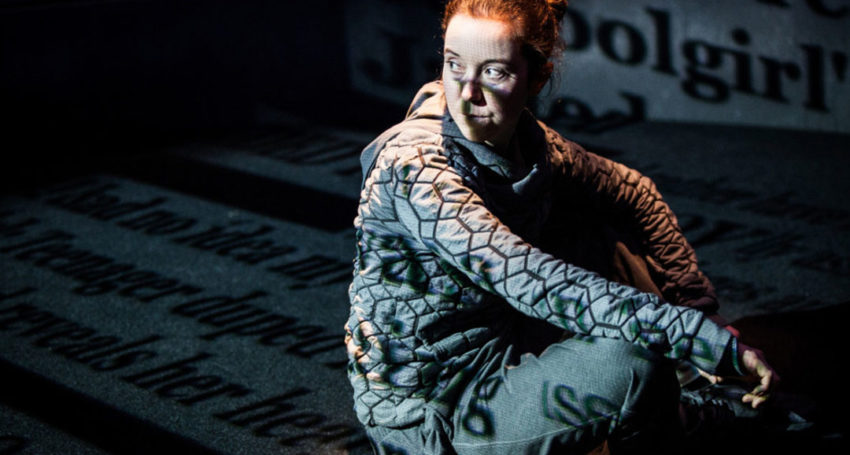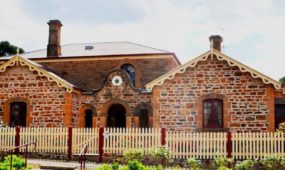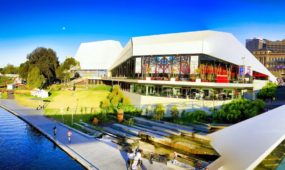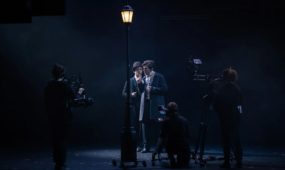Medical researchers look to the Australian arts to put health on the agenda
Arts
AN INNOVATIVE program to raise awareness of complex and often taboo medical issues will make its international debut at the second largest fringe festival in the world this month.

Sign up to receive notifications about new stories in this category.
Thank you for subscribing to story notifications.

First started in the UK in 2015, The Sick of the Fringe project will make its way to the Adelaide Fringe in South Australia for a pilot program during this year’s month-long festival.
Funded by Wellcome Trust, the world’s largest medical research charity, the program is aimed at highlighting and supporting shows that spark conversations about medical issues such as mental health, disability and wellbeing.
The program will also build collaborations between some of the South Australia’s leading medical researchers and the arts thriving scene.
Already, several medical research groups and organisations including RiAus, SAHMRI, Cell Therapy Manufacturing and the University of South Australia have expressed interest in the program.
Adelaide Fringe Director Heather Croall said the decision to bring The Sick of the Fringe to the festival was recognition of a growing number of acts that focused on medical issues.
“A great example, which was an award winner in the Fringe last year, was Fake it Til You Make It,” she said,
“That is exactly the kind of show we’re talking about, it’s a personal biographic story talking about mental illness, talking about the personal experiences of depression.
“It’s real lateral thinking the way that artists can take research which might seem quite dry but then create incredibly engaging stories.
“We’ve seen more and more shows coming to the Fringe where artists might take their own personal stories and explore them, it’s a perfect time for the Sick of the Fringe to come to Adelaide because we’ve just seen the growth of that sort of style of show registering.”
For its first festival outside of the UK, The Sick of the Fringe will take a hands-off approach, running initial workshops to lay the groundwork for further collaboration in 2018.
While in Adelaide, The Sick of the Fringe’s producers will look at the shows on offer and aim to highlight ones that explore complex medical issues and bring together artists who focus on those themes.
“There’s a show in this year’s Fringe called We Live by the Sea, which explores autism and friendships with an autistic character,” Croall said.
“Another one this year is called Scorch and that would be a great example of the sort of shows we’re talking about – something that’s dealing with the really personal issues.
“Those are the kind of things we imagine Sick of the Fringe and the Wellcome Trust will be able to see.”
While one aim of the The Sick of the Fringe is to highlight existing shows, producer Brian Lobel will also look to build networks between local medical researchers and artists in Adelaide for future partnerships.
In the UK, The Sick of the Fringe has found success in connecting the fields of art and science, something Lobel aims to develop in Adelaide.
“An example I’m working on right now – Brightlight is the largest group involved in the study of young adult cancer and the results have just come out from a five-year study. We are taking the results of that survey and turning it into art,” Lobel said.
“But it’s also not being afraid to invite say a mental health professional into a work in progress and actually hear feedback that this language is really good, or this is something we found really problematic.
“So we’re going to visit universities and hospitals in Adelaide and talk to some science media that’s there, because we want to try and figure out who are going to be the real partners.
“I want to find people for whose work this resonates with and who are ready and interested in partnering with us.”
As part of the pilot program in Adelaide, Lobel also hopes to change the way local festival writers think about shows that explore complex issues.
During his time in Adelaide, he will run several workshops teaching a style of writing he has developed called ‘diagnoses,’ which focus more on the themes of a piece instead of its overall quality.
“This year the goal is for me to gather groups of writers who are interested to come and see shows with me and then we talk about what it would look like as a diagnosis.
“Then the goal is we actually have examples for next year’s for writers who might want to get involved with it all.
“We’re really excited – Adelaide Fringe holds a huge number of possibilities for us working from scratch with people we’ve never met before”




